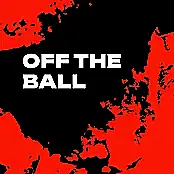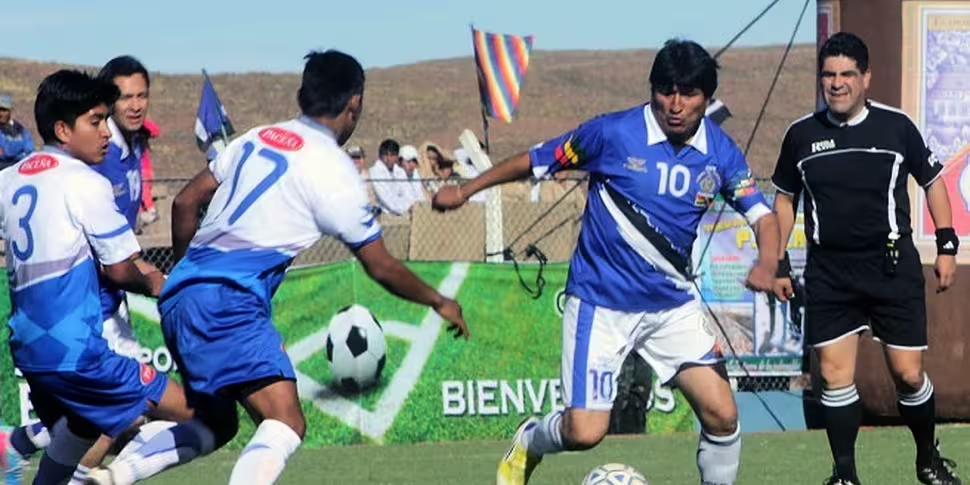As the World Cup's grand finale approaches, Jonathan deBurca Butler looks at some world leaders who would do anything to be playing in Rio on the tournament's last day.
According to historians, the Roman Emperor, Commudus, fancied himself as a bit of a gladiator.
A contemporary, Dio Cassius, wrote that the Emperor, who reigned from 180 – 192 A.D., had a penchant for slaying amputees and injured soldiers and he would charge the populus romanus a
pretty sum for the privilege of the spectacle. Legend has it that on one day in the Colosseum he slew 100 lions while on another occasion he held aloft the head of an ostrich he had just decapitated as an example of what might happen to his rivals should they cross him. He soon joined his erstwhile victim when those same enemies thought it prudent to get there before him.
The Romans were well aware of the power of sport. The man who built the Colosseum, Flavius Vespasian, constructed it on top of a large lake that his predecessor, the self-indulgent Nero, had built for himself and his decadent friends. Shortly after the amphitheatre was completed, the Roman poet Juvanel wrote that the only thing Romans were interested in was “bread and circuses”. Any Roman Emperor who ignored that mantra was sure to fall foul of the masses. This was something that the self-proclaimed re-embodiment of the Roman Emperor, Benito Mussolini, was only too aware of. “Win or Die,” he told the 1938 Italian Football team in a telegram he sent them just hours before they played Hungary in the World Cup final in Paris. They won 4 -2. The Italian dictator’s pal, Hitler, was also cognisant of the power of sport and propaganda. The 1936 Olympics were meant to showcase the new Germany to the world andthe power of the Aryan to the Germans. Arguably, the former was achieved; the latter was most certainly scuppered by Jesse Owens.
Angela Merkel was recently spotted in Brazil giving a hearty ‘JA!’ as Tomas Muller knocked in his third against Portugal early in the tournament. Even last week, Barack Obama sent his heartiest congratulations to U.S. goalkeeper, Tim Howard, for his heroic performance against Belgium while the Secretary of Defence, rather creepily, thanked him “for defending America”.
Where there is victory or glorious defeat, there is too a politician waiting to gush all over it.Most of the world’s civic leaders know their limits. Those are usually set at photo ops and, for the very daring, the occasional kick about with some retired pro. There are some for whom being a fan just isn't enough however.
In May, Bolivia’s President, Evo Morales, signed a contract to play for first division side Sport Boys. The 54-year-old will wear the number 10 jersey, which also happens to be the number his hero, Diego Maradona, wore when he guided Argentina to World Cup victory in 1986. Morales has played in numerous charity matches, including one in which he kneed an opponent in the testicles, but this is the first time he has been signed by a club. The President will be paid approximately 150euro per match and is expected to make his first appearance in August.Thereafter, his availability will be dictated by his political schedule...or vice versa. Interestingly, Sport Boys is based in the province of Santa Cruz, a province noted for its antipathy towards Morales.
Another who dreams of someday running out in a World Cup final is Burundi’s president/evolving despot Pierre Nkurunziza. The 49-year-old plays with Halleluya FC; a team made up of former national players who he also manages. The team travels around Burundi playing what are called friendly matches and in season 2012 -2013 the number 9 was the top goal scorer with a remarkable 39 goals in 28 matches. The team train in a 10,000 seat floodlit stadium that the president cum striker had built in his native village. That would be rather amusing if it weren’t for the fact that only 2% of houses in Burundi have electricity and it remains one of the poorest countries in the world. To be fair to him though, the President has opened a footballing academy through which he hopes to develop Burundi’s future footballing stars. But there is the thorny issue of him possibly running for a third presidential term which is against the constitution. Most observers believe that decision, if taken, would lead the country into civil war and of course put a stop to any kind of football altogether.
Brunei’s Crown Prince, Al-Muhtadee Bilah, is also a fan of the beautiful game. In 1994, he played in goals for his high school football team, Duli Pengiran Muda Mahkota F.C. Such was the quality of his side that it was decided to turn it into a proper professional team that played and subsequently won several competitions under the Football Association of Brunei Darussalam. The team soon moved up the world football ladder and into the Malaysian League where they did surprisingly well. After three seasons there, D.P.M.M. F.C. moved into Singapore’s S. League in 2009 where they won the League Cup. By now, the Crown Prince had retired from playing to become the owner of the club. It hasn’t all been plain sailing however. FIFA banned the club from competing in the S.League due to government interference in Brunei’s F.A. and they have only recently returned after a twenty month exclusion. The break seems to have done them good. With four matches to go this season, the Crown Prince’s club are in top spot by three points; helped in no small part by a Roy O’Donovan from Cork who with twelve goals is one of the league’s top scorers
It is unlikely, though not beyond the realms of possibility, that O’Donovan will soar the heights that one Al-Saadi Gaddafi did in the early part of this century. Colonel Muammar Gaddafi’s third son was signed by Serie A side, Perugia, in 2003. Some believe that the former Libyan leader may have provided the transfer fee himself. After spending a number of games sitting on the bench, Gaddafi was given ten minutes to prove his worth in an end of season league match. He only proved how slow he was and later he failed a drug test. Al-Saadi was known to party hard and was, by all accounts, quite difficult to control. Surprisingly, that reputation and his apparent failure at Perugia didn’t actually end his football career and he went on to sign for another Serie A side, Udinese. In the 2005-2006 season, he played a total of ten minutes against Cagliari.
He later signed for Liam Brady’s former side, Sampdoria, but was quickly seen as surplus to requirements. His lack of success abroad did not hinder his international footballing career however and he captained his country on several occasions. That was just one example of the egomania that his family were prone to and which eventually led to their downfall. Today, Al-Saadi awaits trial in Libya. He is most likely to be found guilty and almost certain to be executed.If only he’d talked to Commudus.
Every Monday from 3pm - Stories from Around the World with Sean and Jonathan
Download the brand new GoLoud App in the Play Store & App Store right now! We've got you covered!
Subscribe to OffTheBall's YouTube channel for more videos, like us on Facebook or follow us on Twitter for the latest sporting news and content.








